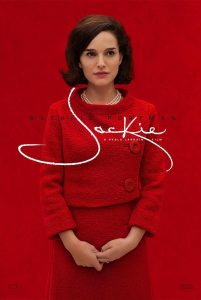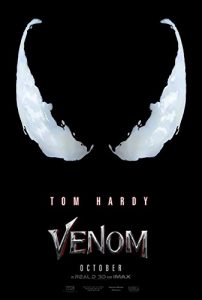On November 22, 1963, John F. Kennedy was assassinated in Dallas, Texas. In his latest film Jackie, director Pablo Larraín (probably most known for Chilean political drama No) focuses on how his grieving widow Jackie Kennedy coped with the tragedy in the days that followed. With a screenplay by Noah Oppenheim, the film is a relatively unique addition to the ‘biopic’ genre. Confined in narrative scope, Lorrain’s vision is assured and intimate. Deserving particular praise are Natalie Portman’s brilliantly layered performance in the lead role and Mica Levi’s unsettling, discordant score. Jackie is a fascinating portrayal of how a highly public figure dealt with a highly public event, and the various identities and spaces she attempted to negotiate in the process.
The film opens with journalist Theodore H. White (Billy Crudup) as he visits Jackie to conduct an interview for Life magazine one week after the assassination. Throughout their interview he prompts her to reflect on her memories of what happened after the incident – the arrangements that were made with her brother-in-law Robert F. Kennedy (Peter Sarsgaard), the support she received from her close confidante and White House Social Secretary Nancy Tuckerman (Greta Gerwig), and the ways she comforted her two young children throughout the ordeal. These recollections are interspersed with footage taken from the 1962 televised White House tour, and White hopes to assemble these insights into a story that will help America deal with its loss.
Given the condensed time frame, the plot is relatively self-contained. There are also no references to other stages in Jackie’s life – no flashbacks to her youth, no flashforwards beyond the interview. This may not always make for a fully sustained and engaging plot. However, cumulatively Larraín is able to marshal these events to create a steadfastly character-driven portrait of one of America’s most famous First Ladies. And whilst all the performances are strong, there is no doubt that the main attraction is Portman. Her performance is, simply put, outstanding, and the film’s success relies heavily on it. She evidently put in a lot of research beforehand – what is most immediately striking is her adeptness in capturing the distinct cadence and rhythms of her voice, and there is an apparent, arguably self-conscious, performative aspect to her speech. Patient, measured, and soothing, Portman nails these more imitative components.
However, her performance goes beyond mere style and superficial impersonation. Following the assassination Jackie becomes unmoored and adrift, thrust with disorienting haste into the spotlight to cope with her loss whilst also wanting to retain privacy. This balance needs to be navigated and ‘performed’, inflected through grief enacted on different levels and in different guises – personal, private, and public, and as wife, mother and public figure. In footage of the White House tour, Portman’s Jackie is sophisticated and welcoming, and in her interview she is cold, even calculating, in deciding what will be included in the story. In both cases she is highly vested in cultivating a particular image. However, in private moments and conversations with a priest Jackie expresses crippling doubt, and Portman is able to depict these multiple personae with skilful fluidity.
The other conspicuous element of the film is Levi’s original score. Against the poised, polished and picturesque cinematography the score is an unsettling juxtaposition. It is pounding and stifling, as if to counter Jackie’s poise by corresponding to her inner turmoil. Like the camera it follows her around with a jarring insistence that is oddly not strained but complementary. Overall then, whilst the plot is not thoroughly absorbing, Jackie nevertheless represents an ambitious and laudably intimate approach to exploring the inner lives of public figures at pivotal historical moments.
Jackie is in cinemas from 12th January through Entertainment One.






1 Comment